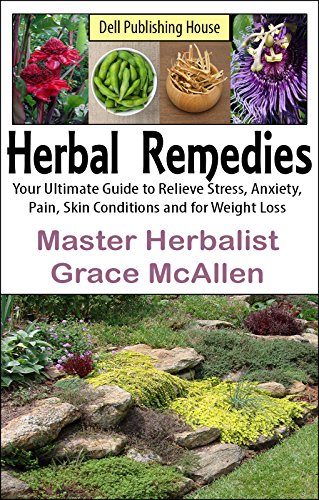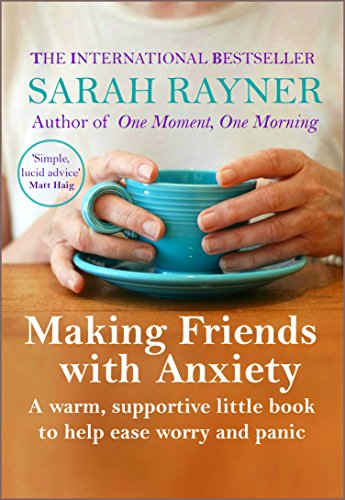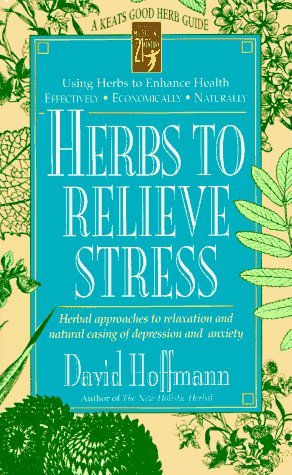Everyone feels anxious at times, and a certain level of anxiety is both normal and even helpful in some situations. Anxiety is our body’s way of keeping us safe. Anxiety can also motivate us. If we feel a bit anxious about an assignment that’s due, it can help us to get it done on time. However, feeling too much anxiety about something usually gets in the way and can be unhealthy.
When everything in your life begins to feel like an emergency or an occasion for dread, then your anxiety has likely gotten out of hand. Excessive anxiety can manifest in one of five anxiety disorders — Generalized Anxiety Disorder, Obsessive Compulsive Disorder (OCD), Panic Disorder, Post Traumatic Stress Disorder (PTSD), or Social Anxiety Disorder.
Anxiety disorder occurs when anxiety starts to severely impact on a person’s life. Rather than feeling anxious in response to actual danger, someone with an anxiety disorder will experience the same symptoms in situations they perceive as dangerous (e.g. meeting new people or taking public transportation).
I often feel anxious in social situations ,some people think that I am very social because I am friendly but I feel shy and insecure most of the time!
I am very insecure about everything but mostly about my looks how about you?
I think that most people are insecure about something dont you?
What do you think is the reason for all the insecurity in this world?I think maybe it is to do with us not loving ourselves enough!
Also I think that maybe we aren’t kind enough to ourselves!Anyway I would love to know what you all think?
Anxiety disorders aren’t caused by a single factor, but rather by a combination of things. A family history of anxiety, a person’s physical health, personality traits and stressful life experiences can all be contributing factors. Anxiety disorders are likely to develop over time and are usually sustained by unhelpful thinking patterns.
With a multitude of guises, it can present itself in your life as insomnia, depressions, fatigue, addiction self-medication, job or relationships and more. If you have anxiety, you know it’s no joke to feel that something is constantly holding you back – or that the sky is going to fall in on you at any second. You know how much it can impact enjoying your life!
Some people think that just because someone is beautiful to look at and successful they have got everything this is not true!
The thing is that people are very insecure even when they are lovely looking,rich and successful they think that when their looks go or they lose all of their money or fame, they have nothing to fall back on,but the most important thing to remember is that people need to be loved that’s what’s important!
Lifestyle Changes To Ease Anxiety
Making Friends with Anxiety: A warm, supportive little book to ease worry and panic – 2018 edition
The good news is that there are many natural remedies for anxiety that are safe and don’t cause adverse side effects like so many anti-anxiety medications. By eating a clean and well-balanced diet that contains important nutrients like B vitamins, magnesium and omega-3s, and using essential oils for anxiety, you will notice an immediate difference in your mood, energy levels and sleep patterns.
B vitamins help to combat stress and stabilize your mood. Vitamin B6, in particular, serves as a natural remedy for anxiety because it works to boost mood, balance blood sugar levels and maintain a healthy nervous system. In fact, symptoms of a vitamin B6 deficiency include anxiety, irritability, depression, changes in mood, muscle pains and fatigue.
In addition, Vitamin B12 is also important for fighting chronic stress, mood disorders and depression. It helps to improve your concentration, improve energy levels and allow your nervous system to function properly.
Eating anti-inflammatory foods can be a natural remedy for anxiety because they are important for balancing your mood and stress response. In addition, it’s also important to eat healthy fats, unrefined carbohydrates and lean protein.
Tandoori salmon with saag dal.
What a combination, both in terms of flavour and nutrient composition. This is almost the perfect dish for the nervous system: omega 3; B vitamins; magnesium; low GI.
I use shop-bought tandoori paste here as it really does save you a lot of time!
SERVES 2 4 heaped tsp tandoori paste 8 tsp natural yogurt 2 salmon fillets 2 garlic cloves, finely chopped 1 tbsp olive or coconut oil sea salt and freshly ground black pepper 130g red lentils 1 litre vegetable stock (you may not use all of it) 260g baby spinach.
½ tsp turmeric ¼ tsp ground cumin.
Preheat the oven to 180°C/350°F/gas mark 4. Mix the tandoori paste and yogurt together. Place the salmon fillets on a baking tray and top with the yogurt mixture.
Place at the top of the oven and bake for 25–30 minutes. Meanwhile, sauté the garlic in the olive or coconut oil, with a good pinch of salt, over a very high heat.
This is one occasion where you want the garlic to brown; this gives it a distinctive smoky flavour that makes the dal amazing.
Add the lentils and a small amount of vegetable stock. Keep adding stock every few minutes, as the lentils cook down, adding it little and often until the mix has a porridge-like texture.
Add the baby spinach and cook until it wilts, then measure in the turmeric and cumin and mix. Taste and season as needed, then serve.
Research shows that consuming foods that have a high glycemic index can contribute to anxiety and depression. Sugar and refined carbohydrates can give you blood sugar highs and lows throughout the day, increasing anxiety, nervousness and fatigue. These foods can cause mood swings and alter your energy levels, making it more difficult to get your anxiety symptoms under control.
To maintain normal blood sugar levels and improve your anxiety symptoms, stay away from refined foods, including baked goods (like pastries and cookies), sweetened beverages, fast foods, fried foods, processed meat and refined grains (which can be found in cereals and packaged breads).
Too much caffeine or alcohol can increase anxiety symptoms like moodiness, nervousness and the jitters.To reduce anxiety, avoid alcohol completely or limit your alcohol intake to 1–3 drinks per week, but no more than two at a time.
Research also shows that consuming too much caffeine can induce anxiety symptoms, and people with panic disorder and social anxiety seem to be particularly sensitive to the effects of caffeine. Limit coffee or black tea to no more than one cup per day.
Regular physical activity helps to improve sleep quality, reduce inflammation, boost confidence, improve energy levels and ease stress and tension. For example, running, walking or hiking outdoors, lifting weights and even dancing can help to combat stress.
Sleep deprivation can contribute to common anxiety symptoms. These symptoms include excessive worrying, and by restoring proper sleep patterns, people with anxiety can reduce feelings of fear, worry and tension.
Aim to get 7–9 hours of sleep every night in order to reduce stress, balance your hormones, prevent moodiness and reduce fatigue. You can also diffuse lavender or chamomile essential oil in your bedroom to help induce relaxation.
For more great Health and Nutrition Tips refer to the website positivehealthwellness.com.
Negative attitudes and feelings of helplessness and hopelessness can upset the body’s hormone balance and deplete the brain chemicals required for feelings of happiness or calm, as well as have a damaging impact on the immune system and other parts of our body.
Certain types of behaviours, such as prayer meditation and positive thinking, can affect our perceptions of the world and make us feel calmer, more resilient, and happier. People have identified many other helpful attitudes such as forgiveness, gratitude, and kindness that can help alleviate depression and anxiety.
Strong relationships and social support networks reduce isolation and loneliness, both key risk factors for depression. While anxiety can sometimes cause us to avoid other people and become isolated, reaching out to friends and family can actually help us deal with anxiety by offering support and helping us make realistic assessments of threats.
Here are some tips to stay connected:
Keep in regular contact with friends and family.
Consider joining a class or group.
Get social support from volunteering (and feel the satisfaction of helping others!)
Bond with a pet. Physically, having a loved one (two or four-legged) close calms us and reduces the fight or flight risk.
Extensive research has found that people with a strong sense of purpose are better able to handle the ups and downs of life. Purpose can offer a psychological buffer against obstacles. Thus, a person with a strong sense of purpose remains satisfied with life even while experiencing a difficult day.
Laughter has been known to ease tension, too. Try to find the humor in difficult situations and seek out the things that make you laugh, giggle, or at least crack an amused smile.
God wants so much more for us than to walk through life full of fear, worry and anxiety!
Herbal Remedies to Relieve Anxiety
Lavender
The beautiful, fragrant lavender is one of the most effective herbs for anxiety — both chronic anxiety and acute situations. Take on a regular basis about an hour before sleep.
Lavender is also gently relaxing taken in tea. Combine ½ tsp of each of the following: lavender blossoms, chamomile blossoms, and lemon balm leaf, and steep in a tea-pot or herbal tea infuser for 20 minutes in 1 cup of boiling water. The dose is 1 cup. Tincture dose is 1-2 mL in ¼ cup of water, up to 4 times/day.
Lavender oil can also be used as aromatherapy in a diffuser, on your pillow before sleep, in a bath, or a few drops applied topically to reduce acute anxiety symptoms. You might want to carry a small bottle of the oil with you in your bag.
For more great Health and Nutrition Tips refer to the website positivehealthwellness.com.
Passionflower (Passiflora incarnata)
Often mistaken for an aphrodisiac because of its seductive name, passionflower is actually the remedy for people who are so burned out and exhausted that all that’s left is anxiety. This is the remedy for people who give and give until they have nothing left for themselves. The tips of their tongues are usually bright red, and they feel a sense of being exhausted but unable to rest because the thoughts in their head keep spinning out of control. They may have heart palpitations or a racing heartbeat during bouts of anxiety.
This plant is effective in both tea and tincture form.Use 20-40 drops of tincture in a little bit of water (for a 150-pound person) and increase the dose by 10 drops at a time if you don’t feel relief after 15 minutes.
Turmeric / Curcumin
Turmeric is a root, technically (properly called a rhizome), that when fresh doesn’t look too dissimilar to its cousin, ginger root. That is, until you cut it open and you see the bright yellow inside! Like ginger, turmeric contains ‘phytochemicals’ that reverse inflammation.
Curcumin, which is one of the principal active ingredients derived from the spice turmeric, has particularly powerful anti-inflammatory effects and these have been found to be helpful in reducing anxiety specifically associated with a chronically activated stress response.
The powdered herb is a healthful addition to smoothies and other foods, and is healing for the digestive system. For the anti-anxiety effects, you’ll want to take curcumin extract. The dose will vary according to the product, but is typically 80 to 500 mg day.
For more great Health and Nutrition Tips refer to the website positivehealthwellness.com.
Skullcap (Scutellaria lateriflora)
Skullcap is the anxiety remedy for people who experience anxiety along with restlessness, muscle tension, and jaw clenching. If you tend to toss and turn in bed, or if you feel like you can only relax when you’re out walking, skullcap can help you to unwind not only your anxiety, but also the accompanying muscular tension and restlessness.
Skullcap is effective in tea or tincture (a tincture is an herb extracted in alcohol) .
Ashwagandha
Ashwagandha, also an adaptogen, can significantly reduce the symptoms of anxiety, and has been shown to improve cortisol levels,overall reducing your predisposition to anxiety.
Adaptogens promote balance in many systems of your body. Remarkably, they can calm you down and boost your energy at the same time, without over-stimulating you.
While some adaptogens work quickly, most work over time and have cumulative benefits. Some people take them daily for months before getting the full effects.
You can add a teaspoon or two of the powder to smoothies or other foods, it can be taken in capsules, 500-1000 mg twice daily, or in tincture form, 2-4 mL, twice daily. It can be taken before bed to help with sleep, including when worry is keeping you awake.In addition, it has the power to lower inflammation and fight infection.
Kava kava (Piper methysticum)
Kava kava is the most famous anti-anxiety herb, and with good reason. It’s a powerful remedy that’s been shown to be effective in reducing anxiety, as compared to a placebo. It has an intriguing taste that almost numbs your mouth as well as medicinal use for its sedative and pain-relieving properties.
In recent years there’s been some research to suggest that over-consumption of kava kava may damage the liver, so dont use this herb if you have liver problems, if you consume alcohol regularly, or concurrently with acetaminophen. That said, there is a very long history of safe use of this herb, so as long as you don’t have any liver issues, you can feel confident using this herb up to 3-4 times per week to help relieve your anxiety. It’s effective as a tea, tincture, or capsule, but tea or tincture is best.
Tulsi, or Holy Basil
This plant is a powerful antioxidant. While people have used it for a variety of treatments, it’s most significant potential might be for stress-relief and relaxation.
People who take it often report that it gives them a calming effect and a general sense of well-being.
Tulsi has also been found to help regulate your blood sugar and support heart health.
In traditional healing systems, people have often taken this herb over a lifetime to increase vibrant health and longevity.
Further evidence is mounting that tulsi can address physical, chemical, metabolic, and psychological stress. It has been found to protect organs and tissues against chemical stress from industrial pollutants and heavy metals and against physical stress from prolonged physical exertion and exposure to cold and excessive noise.
Use tulsi regularly to help balance your body and support its response to everyday stressors.
Some ways to use this herb:
As a tea ,In cooking,as a capsule or tablet,in a powder form.
Tulsi may have an antifertility effect. Therefore, pregnant women or couples who want to conceive shouldn’t take this herb.
Lemon Balm
A member of the mint family, lemon balm has been studied for its anti-anxiety effects. For thousands of years, people have used it medicinally. And today, it’s often combined with other calming herbs, such as chamomile, valerian, and lavender.
With its citrusy flavour, the scent and the delightful taste make it an enjoyable way to soothe and boost your mood.
Researchers found that lemon balm reduced anxiety and related symptoms by as much as 18% and decreased insomnia by 42%. And they observed no adverse effects.
Lemon balm is also able to effectively increase GABA activity in the brain. Your brain uses the neurotransmitter GABA to prevent over-excitement and achieve balance. It helps keeps our stress levels low and plays a role in sleep.
For most people, lemon balm is considered safe to take daily. Some health practitioners even recommend using it to soothe teething children. Many people use it to improve their mood and stress levels, as well as for anxiety or seasonal affective disorder.
Some ways to use this herb:
As a tea,In tinctures or syrups,In cooking and baking,Lemon-balm infused water
If you have leaves from this plant, you can simply rub a leaf between your fingers to absorb some of its essential oils aromatically. Fresh lemon balm has its own special benefits, and it’s easy to grow in containers.
Chamomile
Chamomile has been used as both a dietary supplement and medicinal herb for hundreds of years. It’s helpful for promoting general relaxation and well-being, in addition to treating acute issues like anxiety, depression and insomnia.
The health benefits of chamomile are endless. If you are feeling jittery, this herb will help relax muscles, calm nerves, reduce anxiety and help with insomnia. It also improves digestion and decreases headaches. The most popular way to consume chamomile is in tea form.
Schisandra | Schisandra chinensis
Like ashwagandha, this tart, red berry is also an adaptogen that helps relieve anxiety. Schisandra is both calming and stimulating. It calms the mind at the same time as it enhances reflexes, work performance and mental clarity. This combination is especially effective for individuals seeking relief from anxiety who need a high level of mental clarity and focus.
As an adaptogen, schisandra also helps strengthen an immune system depleted by chronic stress and is useful for stress-induced asthma. Schisandra should not be combined with barbiturates as it can increase their effects.
Schisandra berries can be prepared as a tea, but should be allowed to simmer 20-40 minutes to extract their full potency. Schisandra can also be used in the form of a liquid extract.
Herbs can be surprisingly useful in helping you to reduce your stress at home and at work. But you can’t use herbs to singlehandedly make up for a lack of sleep, poor diet, lack of exercise, or being stuck in poor lifestyle choices.
And keep in mind that sometimes, herbs can occasionally trigger side effects and interactions with prescription drugs.
This online database can help you to find interactions between drugs and natural medicines.
It is imperative that in seeking to complement treatment with herbs, a diabetic does not stop taking any regular medication from their GPs or consultants and that the blood glucose levels are closely monitored whilst on a course of treatment.
Also Refer to our article Using Herbal Remedies Safely!
READER RECOMMMENDED RESOURCE
https://www.mattressnerd.com/sleep-and-ptsd/
If you have any information,questions, or feedback you would like to include in this post.
Please email momo19@diabetessupportsite.com or leave your comments below.






